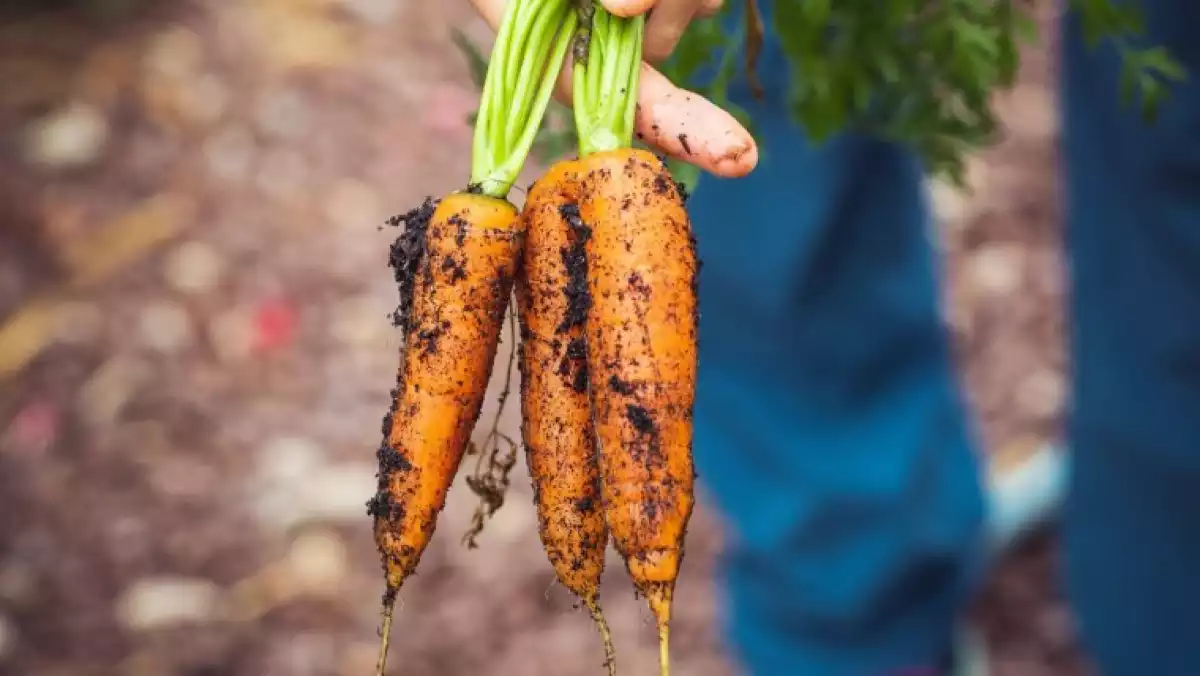

Organic food and products are available at nearly all grocery stores but what really makes these goods different? Is organic better?
If you want to know the answer to all of these questions, then you should keep reading. Here we talk about what organic food is and the benefits of these products. Besides, we give you a list of foods to buy organic.
What is organic food?
Products derived from agriculture or agro-industrial practices cultivated and/or made following 'organic' methods are organic food.
These types of procedures are natural and always avoid the use of chemicals and artificial or synthetic materials. Organic agriculture and livestock farming began in the 40s after a massive overproduction that occurred during this period.
Organic food is highly regulated, and its quality and origin need to be certified. Companies that produce organic foods only use specific types of agrochemicals permitted, and they can't use genetically modified seeds or plants in their products.
Organic crops are fertilized with materials like: compost, mineral powders, and other nonchemical substances. Terracing, rotating crops, and planting legumes are examples of organic agricultural methods to produce these foods.
Foods labeled '100% organic' should only contain organically made ingredients. Those that are simply labeled 'organic' should have at least 95%, and finally, all of these products are required to contain at least 50%, otherwise, they cannot use this type of label.
Benefits of organic food
Eating organic food has many advantages. For example, produce grown this way doesn't use or uses very little artificial or synthetic pesticides, herbicides, fertilizers, hormone residue, and other chemical procedures.
Besides, they are usually more nutritious and contain phytochemicals that the body needs -plus, their flavor is generally better and more concentrated. On an environmental and social level, they promote biodiversity, save more water, and follow standards that protect animal welfare.
Even though organic food usually doesn't contain less fat, more vitamins, minerals, or fiber than the same foods grown with conventional methods, they do lead to better soil fertility. This allows for a higher concentration of mineral and phytochemicals in these organically grown foods.
Is organic better? Possible cons
However, these products are more expensive, in many cases, their appearance doesn't do them justice in comparison to their flavor, and sometimes, they are fertilized with manure or wastewater that contain harmful organisms.
In some cases, organic foods can contain pesticide residue from nearby farms, or that's found in the ground or water, although the quantities of said residue are surely higher in conventionally produced food, where pesticides are sprayed directly on the crops.
A list of foods to buy organic
As we've seen, consuming organic products can be highly beneficial. So, below we share a list of foods to buy organic, that you'll want to pick up at the grocery store.
1. Fresh seasonal produce
Generally speaking, buying organic fruit is recommended over the conventional kind. However, there are some types like apples, grapes, berries, nectarines, and/or tomato that are especially worth buying in this way. This is because these fruits absorb more pesticide residue than others, and particularly apples.
2. Leafy green veggies
Leafy green vegetables like cabbage, lettuce, escarole, spinach, collard greens, kale, etc. are worth buying organic since their leaves have a larger surface for pesticides to stick to and they are difficult to get off.
3. Other organic vegetables
Certain vegetables like cucumbers are also better when produced organically. In this case, cucumbers contain more than 86 pesticides. If you aren't able to buy organic than you should at least peel this veggie before eating it since this is the part exposed to the most residue.
4. Hot peppers
Hot peppers grown conventionally can contain up to 75 types of pesticide residues in their composition, many of them harmful neurotoxins. That's why if you buy them this way, it's important to wash them to avoid eating these toxic substances.
5. Organic meat
Organic meat comes from animals fed a specific diet based on non-GMO foods, without hormones and/or antibiotics that the industrial farms use to speed up muscle tissue growth in animals.
These farms also follow sustainable practices in feeding and caring for the animals. Finally, this type of meat reportedly contains more antioxidants.
- Related: Types Of Meat: White And Red Meat
6. Organic eggs
Eggs are highly nutritious, and the quality of these is essential to our diet. That's why buying organic eggs ensures this goal since the diet and life of the animal that produces them is the best it can be.
To know whether the eggs you want to buy are organic you need to first look at the number -it needs to be 0. This makes sure that the chickens that lay them are free-range animals and that they eat an organic diet.
References
Kunkel, M. E., & Luccia, B. H. D. (2004). Organic Foods. In D. C. S. James (Ed.), Nutrition and Well-Being A to Z (Vol. 2, pp. 113-117). New York, NY: Macmillan Reference USA.
Shelton, A. M., Zhao, J. Z., & Roush, R. T. (2002). Economic, ecological, food safety, and social consequences of the deployment of Bt transgenic plants. Annual review of entomology, 47(1): 845-881.